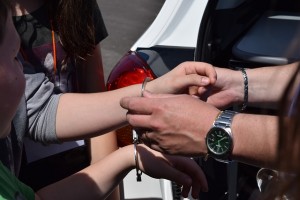Losing one’s driving privileges is often much more devastating than people anticipate. You are not able to drive to work—New Jersey does not allow for any temporary, provisional or “work” licenses – you are not able to drive to school; you are not able to drive to the supermarket to purchase food for your children, or take them to the hospital in the event of a life-threatening emergency. Quite simply, there is no flexibility in the law when it comes to a revoked or suspended driver’s license. This especially holds true if you live in an area without public transportation, or have no family to assist you.
You may be on the revoked list for many reasons—you may have a prior DWI conviction, you may have failed to pay drunk driving surcharges to the Motor Vehicle Commission, or your license may have been suspended or revoked in another state. Regardless of the reason for your suspension, if your license has been revoked, you cannot operate a motor vehicle in New Jersey during the period of your suspension for any reason.
Nevertheless, many people decide to drive without a valid license, gambling with their future, and betting that they won’t get caught. Thousands of drivers on the revoked list are pulled over for routine traffic stops every year in New Jersey.
New Jersey License Suspension
If you are caught driving on a suspended license, you could face enormous fines, a mandatory 90 day jail sentence, steep motor vehicle surcharges, and an additional period of license suspension. You will also face expensive collateral consequences that can financially hobble you for years (including expensive taxi rides and lost job opportunities). These are consequences that you will have to face even if you are not aware that your license has been suspended.
There are several strategies that can be employed if you are charged with driving on a revoked license, that at the very least can give you a fighting chance against the imposition of an additional period of license suspension or jail time. First, the governing statute N.J.S.A. 39:3-40 does not prohibit alternatives to jail time, such as community service, so under certain circumstances it is possible to request an alternative punishment during sentencing. Second, charges for driving on a suspended license can be reduced through plea bargaining (whereas plea bargaining is not an option for DWI offenses). Additionally, you may be able to avoid jail time if you entered a plea without being represented by an attorney, or in violation of your constitutional rights or New Jersey Court Rules.
Top New Jersey Drunk Driving Lawyer Edward M. Janzekovich Represents People Charged With Driving on a Suspended License
We understand how devastating the consequences of losing your license can be. If you have been charged with driving on a suspended license, you could face an even longer suspension period, jail time and other life changing consequences. Don’t take chances with your future. To speak with an experienced New Jersey DWI lawyer about your situation, call us at 732-257-1137 or contact us online today. We serve clients in Ocean County, Monmouth County, Mercer County, Middlesex County, Union County and Somerset County, including Union, Dover, Brick, Jackson, Wall, Woodbridge, East Brunswick, Evesham, Howell, Robbinsville, Bound Brook, Neptune, Hamilton, Linden City, Bridgewater and Tinton Falls.




 In New Jersey, if you are convicted or
In New Jersey, if you are convicted or 
